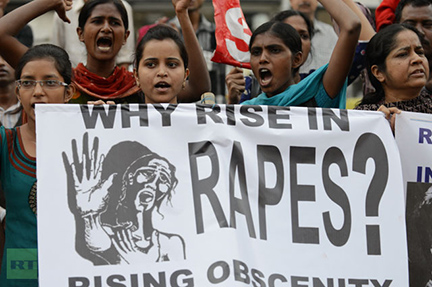
For International Women’s Day, it is important to reflect on issues that are of significant impact on women around the world. Let’s start with a beginning, the Genesis one. The original creation story familiar to Judaism, Christianity and Islam starts out with man alone. Not only is the first man not like other animals, which he has no problem naming, but he has no family: no nurturing mother, no moral father, no brothers or sisters. He was formed as a lump of clay with breath and a spirit connection to the divine. Even the presence of God, his creator father figure, was not enough for this lonely man. Surely this garden paradise was hell for the man alone.
So God put Adam to sleep, extracted a rib and fashioned a woman to be his mate. But again this was still a fool’s paradise with no other human beings around the first pair. No doubt it was less boring, but there seem to have been few challenges for the couple, since everything they needed (except clothes which were not yet fashioned) were at hand. Yes, they had each other, but apparently only as a brother and sister might. Until that fruitful day when Eve bit into the knowledge of good and evil, it must have been boring beyond belief. Disobedience by the pair, something quite normal for all children who could hardly know better, led to a disaster for the first couple, their children and all children ever after. So the story goes. Hell would now shift from the lonely boredom of Paradise to the sweat and blood reality of a world where both had to work for a living.
The gender gap, foretold in the curses on Adam and Eve, has many variants, but the vast majority of societies give the male precedence. Post Eden became a man’s world, where brother kills brother and the line of begats is male to a fault. One assumes all this begetting involved sex, but the opening chapters of Genesis are strangely silent about sex. One can understand the desire not to draw attention to the original incest, but one wonders about the libido of these descendants of Adam and Eve. By the time of Noah sex is a serious issue, one in which the “sons of God” saw that the “daughters of men” were “fair”, at least in the sense of fair game. So when we are told “And God saw that the wickedness of man was great in the earth, and that every imagination of the thoughts of his heart was only evil continually” (Genesis 6:5), we have finally arrived at and beyond what might be called the gender gape.
Gaping at women, sexist as that can be, is never the same as raping women. Genesis has its “fair” share of rapes. Forcing sex on women surely predates what some would tout as the world’s oldest profession, prostitution. The mentality of an immoral man is not to pay for what he can take for nothing. That mentality has not abated, despite all the measures of progress we humans take credit for. Statistics of reported rapes are hardly an exact measure of reality, but in the United States it is estimated that between 300,000 and 1.3 million victims are raped each year. Some argue that about half of all rapes go unreported. Statistics worldwide are widely seen as flawed, but it is clear that rape is a problem everywhere, some places more than others.
Late last year and earlier this year several gang rapes in India caught not only the attention of the Indian public but of most of the world. Some of the gang rapes in India have been fueled by religious hatred. Consider the following account from last year: “On August 25 this year a Catholic nun, Sister Meena Lalita Barwa, was attacked and dragged to a deserted office of an NGO and then brutally gang raped. She was then publicly humiliated by being paraded naked in the streets by a mob of 40 men, while others looked on.” People fed up with the level of violence against women took to the streets in Delhi with demonstrators shouting slogans like “Don’t teach us what not to wear. Teach your sons not to rape girls.†I cannot imagine a woman more modestly dressed than a nun, so the issue in rape should not be reduced to what a woman is wearing or not wearing.
Rape is first and foremost a crime. It is criminalized in just about every law code there is, although some of the earlier ones only considered rape a problem for certain classes of women. Historically rape was a constant companion of pillage, plundering and outright warfare. In the Bosnian war of 1992 an estimated 20,000-50,000 Muslim women were raped, many as part of a distorted strategy to defile the enemy’s bloodline. In Islamic law rape is considered an act of violence, above and beyond the category of adultery or having sex unlawfully. It is even reported in a tradition that an accused rapist was stoned to death, at the admonition of Muhammad, on the basis of the woman’s testimony alone. The Qu’ranic injunction (24:31) for a man is quite clear: he should avert his eyes if he sees a woman who is not modest in his eyes. It would not be polite to gape, but it becomes the worst sort of crime if it ever turns to rape.
The gender gap still dominates; the gender gape is not likely ever to abate given our evolutionary ancestry; but, rape is a disease well worth eradicating.